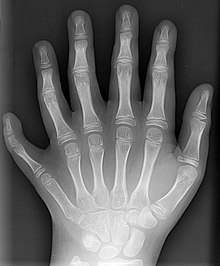
If We Were Polydactyl, Would
11 Be the New 10?
11 Be the New 10?
As I am getting older, I get the feeling that time is accelerating. It's a common feeling, from what I hear. "Every year is getting shorter," as the Pink Floyd song goes. A lot of water under the bridge - four different jobs, two industries, two states (we now live in Princeton, NJ, having joined the flood of middle class families haemorrhaging from California's borders). One little boy.
I am thinking about the significance of numbers. In every culture, of course, numbers carry certain sub-texts. In the west, for example, seven is considered lucky (not sure why); 13 unlucky (depending on the source, reasons vary from the number of attendees at the Last Supper to the date that Pope Clement ordered the "disposition" of the Knights Templar). In east Asian cultures, six, eight, and nine are considered auspicious (the words are homophones for "long lasting," and "wealth."), while four is considered very bad news (it sounds like the word for "death.") In many hotels in China and Japan, there is no fourth floor.
10 carries a certain symbolic weight, as do 100, 1000, etc. I believe that this is owing to the fact that we live in a base ten world (that is to say, mathematically, we count from zero to nine, and then move the next place, put a one, and start over). This is almost surely an artefact of the reality that human beings have 10 fingers, save for certain polydactyls (people with extra fingers/toes). If we had 11 fingers and not 10, then the "Spinal Tap" joke about 11 would be a lot less funny.
In statistical testing of hypotheses, something is declared to be "significant" if its p-value is less than 0.05 (the estimated probability of the event happening by chance being less than one in 20). The standard was set by the father of statistical inference, Sir R. A. Fisher. In a somewhat apocryphal story, Fisher commented that 0.05, as opposed to 0.04 or 0.06 or some other equally arbitrary number, was chosen because we have five fingers on each hand, and that seemed as reasonable as any other standard to him.
So, here's to 10 years great years, and hopefully many more.